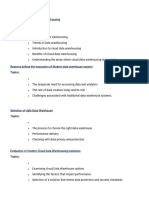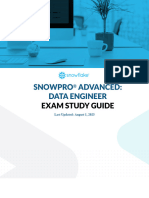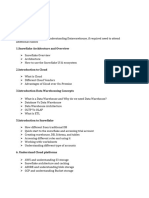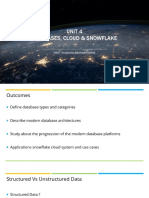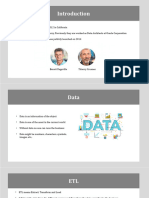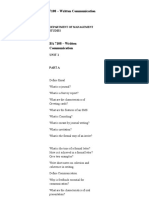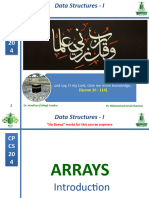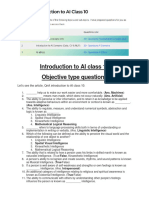0% found this document useful (0 votes)
21 views8 pagesAWS Data Eng
The document outlines a comprehensive training curriculum for Database Management Systems (DBMS), Data Modeling, and Data Engineering, structured into five phases. Each phase includes various instructor-led training sessions, assessments, and project work, covering topics such as ANSI-SQL, Data Warehousing, ETL concepts, Python programming, Big Data, AWS, and Snowflake. The total duration of the program is 487 hours, emphasizing hands-on practice and collaborative learning.
Uploaded by
babjeeponnamCopyright
© © All Rights Reserved
We take content rights seriously. If you suspect this is your content, claim it here.
Available Formats
Download as DOCX, PDF, TXT or read online on Scribd
0% found this document useful (0 votes)
21 views8 pagesAWS Data Eng
The document outlines a comprehensive training curriculum for Database Management Systems (DBMS), Data Modeling, and Data Engineering, structured into five phases. Each phase includes various instructor-led training sessions, assessments, and project work, covering topics such as ANSI-SQL, Data Warehousing, ETL concepts, Python programming, Big Data, AWS, and Snowflake. The total duration of the program is 487 hours, emphasizing hands-on practice and collaborative learning.
Uploaded by
babjeeponnamCopyright
© © All Rights Reserved
We take content rights seriously. If you suspect this is your content, claim it here.
Available Formats
Download as DOCX, PDF, TXT or read online on Scribd
/ 8






